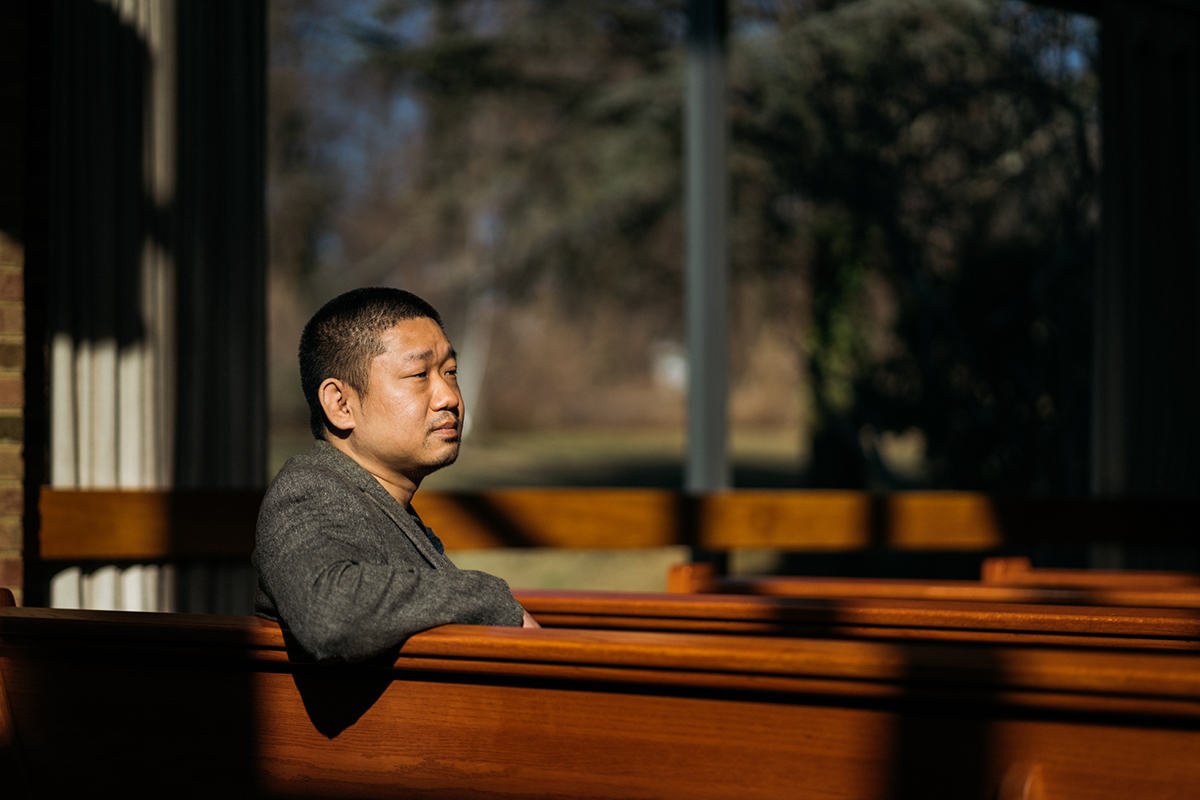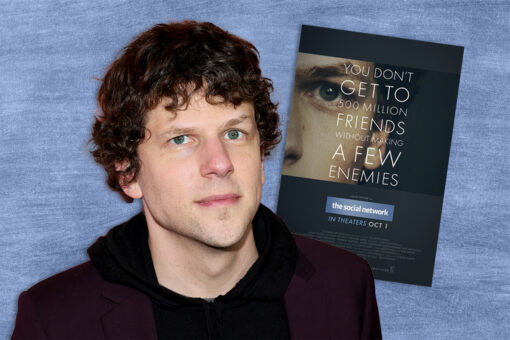Before 2020, I was notoriously kitchen-shy. Then, like many others in the pandemic, I found myself overwhelmed with unfilled hours, completely unmoored from my existing routines. I craved some reliable rhythm to my days. One answer — not particularly original, but effective — was bread.
Bread comforted me for several reasons. First of all, it’s bread. If your apartment smells like it, it’s hard to feel 100% bleak about anything. Also, as loss surrounded me, baking family recipes made me feel closer to the women of my family who had taught them to me.
Bread reminds us that sometimes, time is all that’s required for transformation to occur, even if you don’t yet understand how it’ll happen. If you do as bread asks, it rewards you for your efforts in a tactile, obvious way. When I despaired at accomplishing nothing, a ballooning ball of sourdough or challah served as irrefutable proof: I did that. I went from feeling abject terror about cooking simple meals to cooing over my starter as if it were a human child.
So imagine my delight when I discovered a music video that combined one of my oldest loves — music — with the newfound wisdom of bread. Andrew Choi, as St. Lenox, just released the video for his song, “Arthur is at a Shiva.” The track is from his upcoming album “Ten Songs of Worship and Praise for Our Tumultuous Times,” billed as “a progressive, queer, spiritual record tracking the great American religious drift of the 21st century.”
The song itself is memorable. Andrew’s highly specific voice, which holds a lot of emotional charge, and the percussive drive and conversational scansion (he crams more syllables than should conventionally fit into each line) remind me of The Mountain Goats. “I was down at a work party last week to celebrate the end of the summer,” the lyrics begin. “It was the end of the evening then, and we were out at a bar up in midtown. Jerry’s feeling like chicken tonight, and he orders some wings from the waitress, and then Jerry and I traded shots at the bar. It was the typical shenanigans — but where’s Arthur now?” When Arthur does appear, he has a good excuse for his tardiness. “I was just at a shiva today for the death of a good friend of mine. A towering figure in my early life, he was an excellent specimen.”
Over email, Andrew, a Julliard-trained concert violinist, told me that the song is “broadly based on a series of real-life encounters with death. It sort of popped into my head at a work party, where in fact a colleague of mine had arrived late from a shiva. I remember at the time what struck me was both how important the deceased was to him but also how at peace he was, and it got me thinking a lot about ways in which we process death in more positive ways, and how religion plays a role in that. The second verse recounts another story in which I used to teach Sunday School at a church with a woman whose mother died, and she asked me to play the violin at the funeral. I still remember the expression on her face after all these years. It struck me very deeply and has made me think a lot about how transformative religion can be.”
The lyrics and melody would have hooked me on their own. But Andrew has paired them with a video in which he shows the viewer how to make “The Great Fractal Challah,” a challah-tangzhong fusion bread he’s been developing. I would argue that the video provides a true depiction of how this unprecedented year has really felt, at least for me. It’s one of the few pieces of media I’ve seen that actually captures the feeling of a day in quarantine — and not in a way that makes you feel bad, either.
The video teaches the recipe in subtitles which are subtly anchored by the song’s percussion. After a brief establishing shot, we land on Andrew’s face: first pensive, then chewing as he eats a piece of the bread he’s about to teach us. “Why do I bake bread?” the subtitles read. “One answer is that I took up bread as a survivalist skill given the impending anarchist free-for-all that was sure to overtake the nation in the wake of the coronavirus pandemic.” Andrew chews peacefully as these subtitles appear and disappear. “Fortunately, I did not starve to death, and instead created the Great Fractal Challah, whose recipe I now share with you today.”
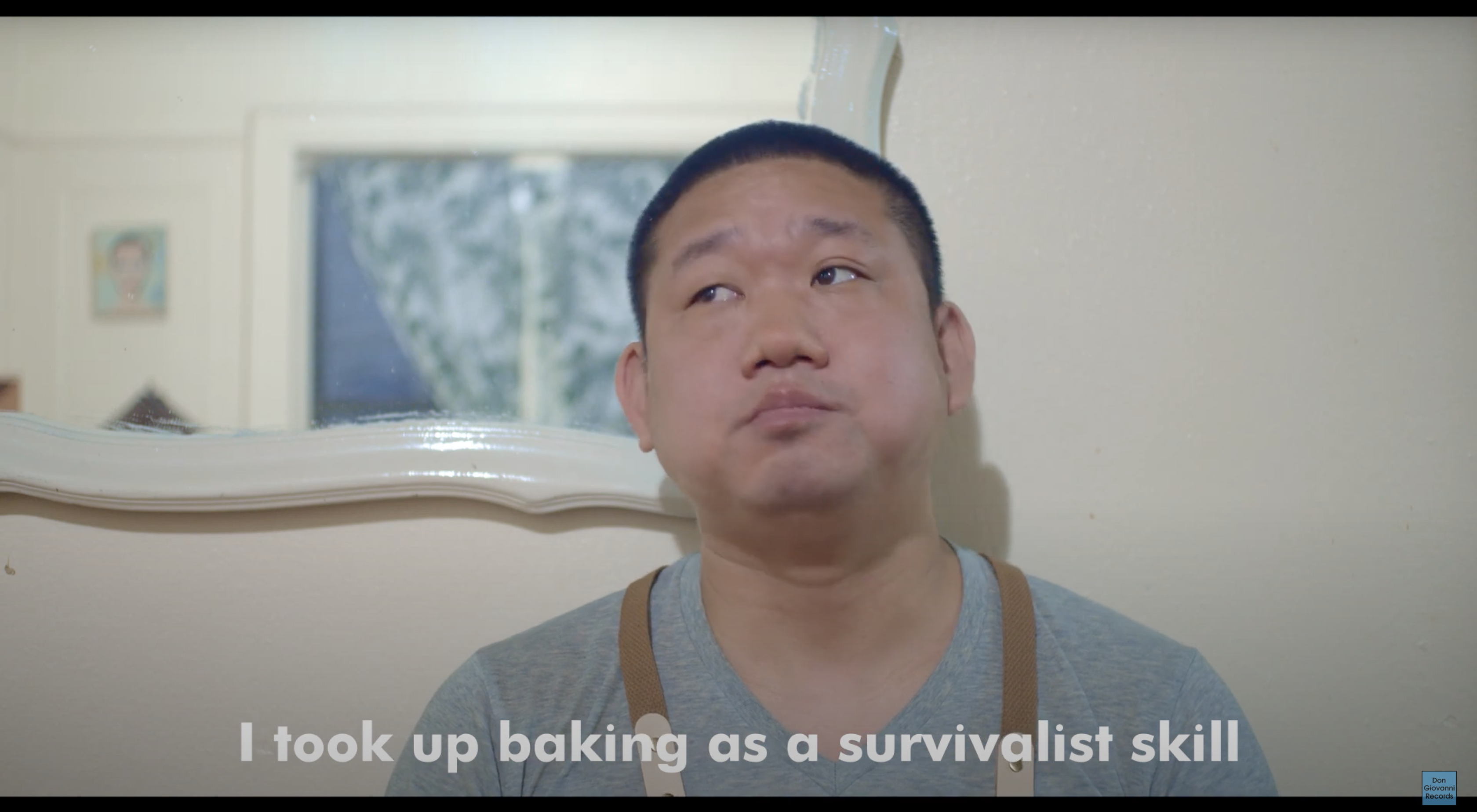
“The Great Fractal Challah” then becomes a triple-, or even quadruple-layered, experience: the song’s lyrics come in, Andrew begins to bake the bread, and the subtitles continue, explaining the recipe’s instructions with digressions — about the multicultural nature of the bread (Andrew is Korean American, and his challah is inspired by Asian milk bread); his husband Elon’s mother (“a woman of formidable talents who I have been studying carefully so as to absorb the finer points of Jewish tradition”); and the parallels between his own family history and Jewish history that make Jewish food feel familiar. Andrew’s dog Tummy makes a charming interruption. After the subtitles express that “Jewish culture is no stranger to diaspora,” they continue, matter-of-factly, “Anyway, now the dough is divided into three pieces.” While the bread rises, Andrew tells us what else, aside from baking bread, he’s learned during the pandemic: how to say the Hamotzi from memory, “Borei Pri Hagafen,” about tashlich, one of my favorite traditions, and to make “a noise on the Shofar. It’s not that I’m religious or anything,” the subtitles say, “but sometimes it’s just nice being with people and sharing in the things that they value… I’ve been secretly joking to myself that maybe the real religion was the friends we made along the way.”
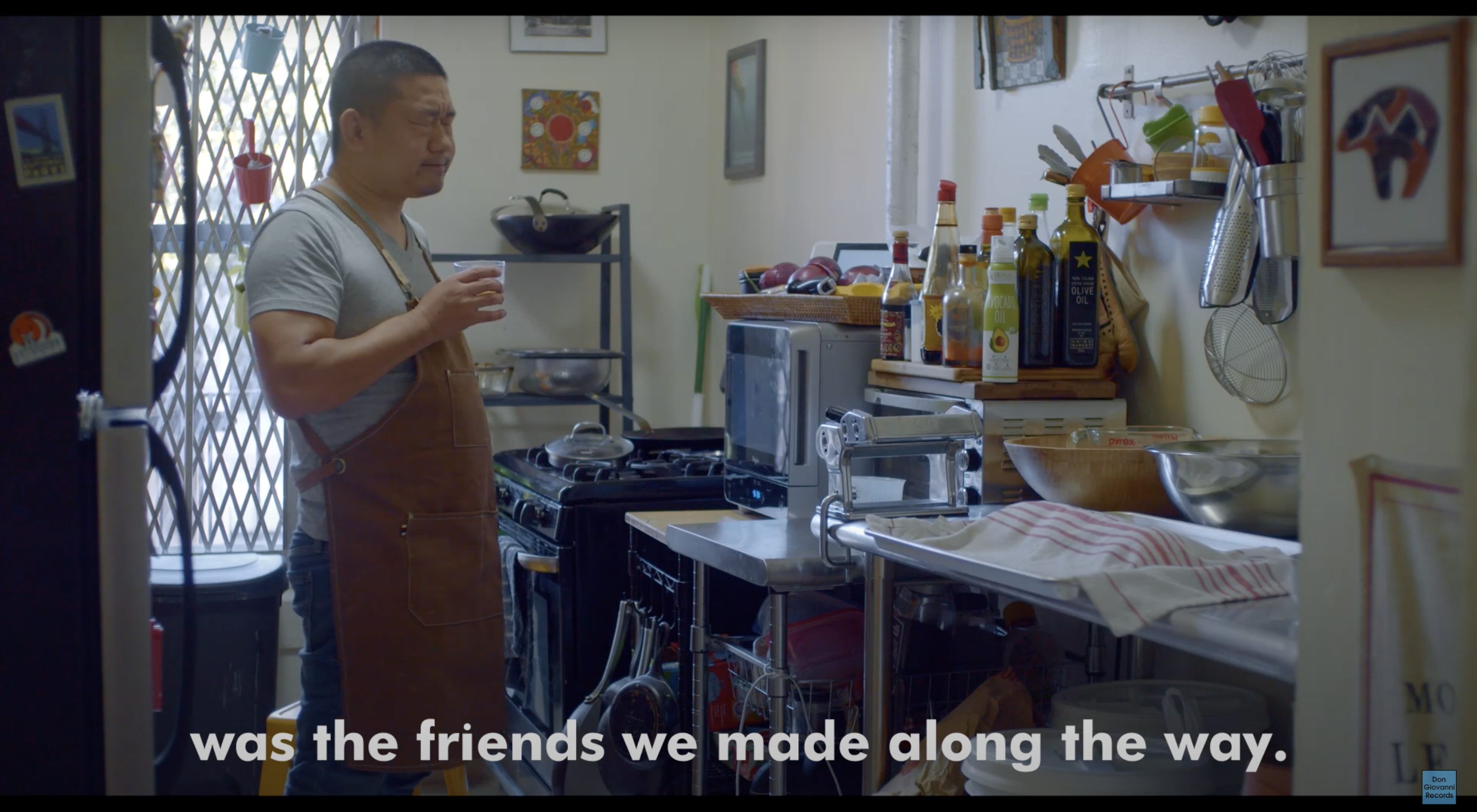
When asked about the genesis of the video, Andrew shared this: “It’s about how religious tradition helps people through adversity. Baking was a way of passing the time during the beginning of the pandemic. But also, we ended up staying with my husband’s brother and his family, and it was just very nice having meals together and saying blessings — something which I had avoided somewhat over the past few decades for a variety of reasons. I started learning how to bake challah there, and then started to think about how I could make a lot of that ritual part of my home, when my husband and I returned to our apartment. So maybe I add something of myself — my own ideas and thoughts into the recipe? But I also wanted to try to maintain much of the original. So I used almond milk and olive oil so that it’d be pareve. And suddenly I had my own tradition that I was building.”
Watching “The Great Fractal Challah,” I felt my pandemic brain had been externalized. It’s hard to articulate in words what the video does so well — that feeling of so much happening at once, of an attention span unable to land for more than a few seconds, of the mundane and the profound equally weighted and right next to one another. Andrew works full-time as a lawyer, so this split focus is something he lived with daily even before COVID. It took several viewings of the video for me to absorb all of its simultaneous pieces; I’m sure it will take many reviews of the past year or so to understand what just happened. It is also weirdly reassuring to be invited into someone else’s routine, to see Andrew waiting for his bread to rise, sipping from a glass, standing at his kitchen counter.
This ordinariness makes sense given Andrew’s musical inspirations. “I’m a big fan of Joni Mitchell, Billy Joel and Paul Simon. It may not come out in all of the music that I do. But there’s a conversational storytelling aspect of their writing that always felt like I was actually hearing them tell it to me personally, if that makes sense. I want people to feel that in my music, because I am in fact telling people real stories about my life. I think sometimes songwriters feel a lot of that personal stuff is too mundane for prime time, but it’s the stuff that populates all our lives, so it’s got to be important, right?”
At the end of the video, we get to see the final product: the Great Fractal Challah, a glorious braided loaf made up of three smaller braids. Then we return to Choi munching. The subtitles invite the viewer over post-pandemic to try it, and then add, “There is someone in particular who I’ve been thinking of sharing it with. You see lately, I’ve been thinking to myself, What would it be like to have children?” And we return to Choi holding Tummy, who looks thrilled to be in his arms.
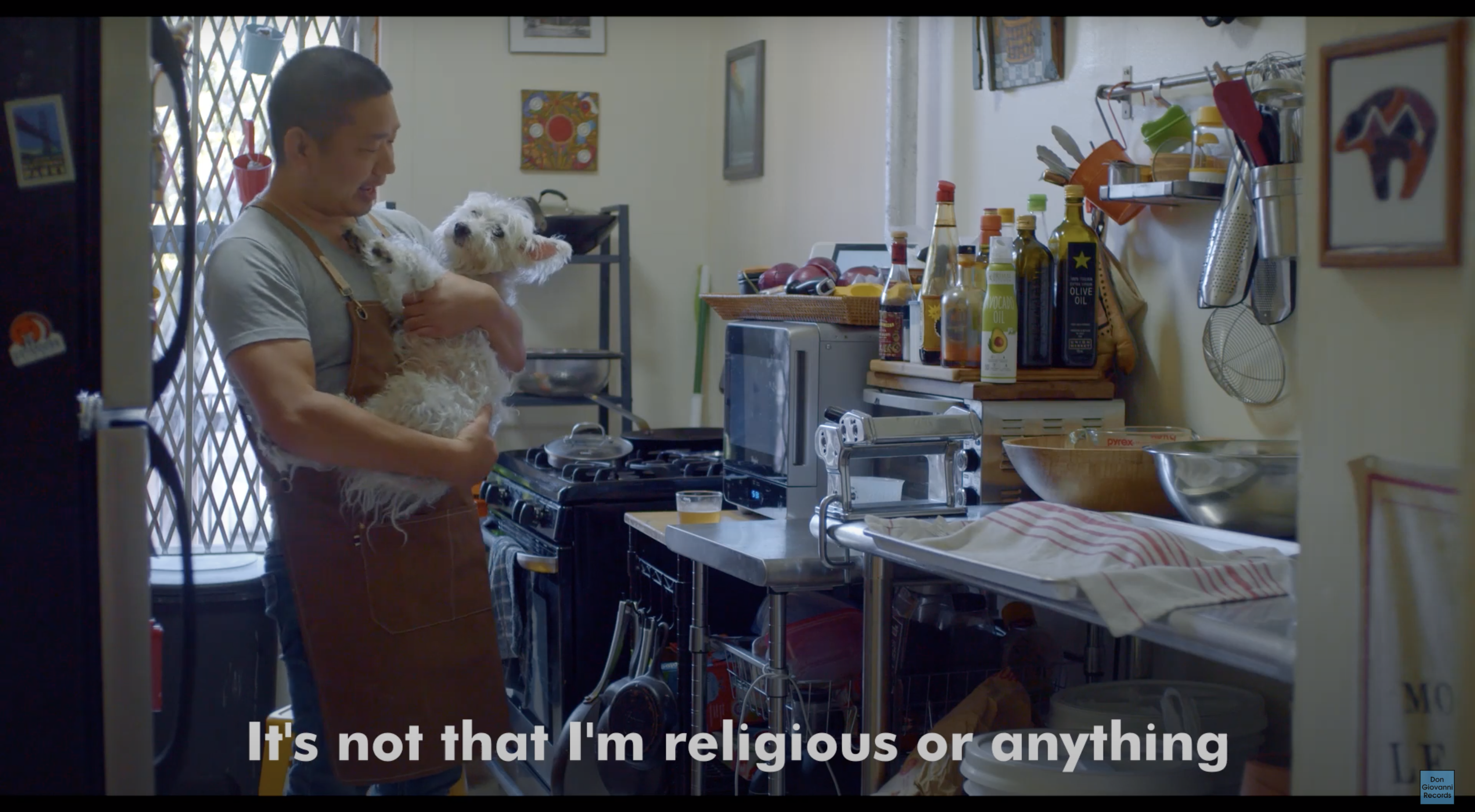
“It seems a little paradoxical,” Andrew said, “but creating a tradition of my own helped me think about the future again, which was something that was maybe hard to do during the worst moments of the pandemic when you’re just trying to make sure you’re healthy and safe.”
I’m grateful to Andrew for sharing his new tradition, his music, and his hope — and I look forward to making the Great Fractal Challah.
